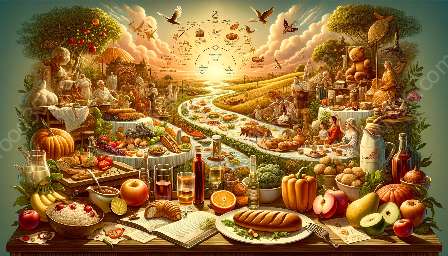World War periods brought significant challenges in food availability and sourcing. Vegetarian cuisine played a crucial role during these times, impacting the greater history of cuisine. Let's explore the history, challenges, and innovations of vegetarian cooking during these tumultuous periods.
Vegetarian Cuisine History
The history of vegetarian cuisine dates back centuries, with cultural, religious, and ethical reasons driving many individuals and communities to adopt plant-based diets. This history has been influential in shaping global culinary traditions and practices.
Cuisine History
Cuisine history is a fascinating tapestry of cultural, social, and economic influences. It encompasses the evolution of cooking techniques, ingredients, and culinary traditions across different societies and time periods. Understanding the historical context of cuisine provides insights into how food shapes societies and vice versa.
Impact of World War Periods on Vegetarian Cuisine
World War periods, such as World War I and World War II, presented enormous challenges in food production, distribution, and availability. Meat shortages and rationing were common, leading to an increased emphasis on vegetarian diets. Many individuals and families turned to plant-based recipes out of necessity, sparking innovations in vegetarian cooking.
Challenges Faced
One of the primary challenges during World War periods was the scarcity of meat due to rationing and supply chain disruptions. This forced people to find alternative sources of protein and nutrients, leading to a resurgence of interest in vegetarian ingredients and cooking methods. Additionally, economic constraints made it difficult for many households to afford meat, further driving the shift towards vegetarian cuisine.
Innovations and Adaptations
As a result of these challenges, various innovative cooking techniques and recipes emerged to make the most of limited resources. Creative use of legumes, grains, and seasonal produce became prevalent in households and community kitchens. Vegetarian cookbooks and guides gained popularity, offering guidance on preparing satisfying and nutritious meat-free meals.
Legacy in Cuisine History
The impact of vegetarian cuisine during World War periods left a lasting legacy in the overall cuisine history. It reshaped culinary practices, introduced new flavor profiles, and encouraged resourcefulness in the kitchen. The creativity and adaptability displayed during these challenging times continue to influence modern cooking and food sustainability movements.
Conclusion
Exploring the history of vegetarian cuisine during World War periods provides valuable insights into the resilience and ingenuity of people facing food shortages and limitations. It demonstrates the significant role vegetarian cooking played during times of crisis and its enduring impact on the broader cuisine history.

